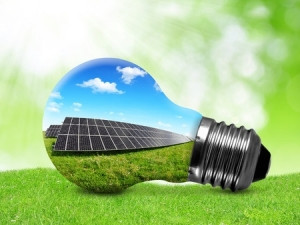
Eskom says independent power producers (IPPs), and specifically renewably energy projects cost it considerably more last year than the previous year. This is according to the parastatal's results for the year ended 31 March, which were released today.
Eskom says IPPs generated 11 529GWh at a cost of R19.8 billion during the financial year, which was an increase of 30.8% from the previous year's cost of R15.1 billion.
The average cost of energy from IPPs increased by almost 10% from 171c/kWh to 188c/kWh "as proportionately more energy was procured from the renewable energy projects at higher costs than the other IPPs".
"The purchase price in the contracts entered with IPPs over the next 15 to 20 years exceeds Eskom's short-run marginal cost and the average price of electricity," Eskom said.
This as Eskom's own generation cost, including the environmental levy, decreased by 8.5% to R60.1 billion. It says coal purchase costs per tonne increases were contained to 3.5%, "which is well below inflation of 6%".
"We will continue to engage with government, collaborating closely with the Department of Energy and Nersa to manage IPP programme risks and mitigate any unintended negative operational and financial impacts on Eskom," said Eskom CFO Anoj Singh.
The energy producer said primary energy costs were reduced by 2.3% to R82.8 billion compared to an average increase of 13% over the last five financial years.
Last month an inter-governmental task team on SA's renewable energy programme proposed further delays to the signing of R58 billion power purchase agreements (PPAs) with IPPs to the end of August or February 2018. The renewable energy industry has for some time been voicing concerns over Eskom's failure to sign PPAs.
Previous energy minister Tina Joemat-Pettersson had directed Eskom to sign the outstanding PPAs by no later than 11 April. After president Jacob Zuma's Cabinet reshuffle, Joemat-Pettersson was replaced by Mmamoloko Kubayi, who has also asked that the signing be delayed.
Firm footing
Eskom today assured the market it is on a "firm operational and financial footing" and interim group CEO Johnny Dladla said while security of power supply was the key concern nearly two years ago, the focus has now shifted to managing surplus capacity.
To manage the surplus capacity, Dladla said Eskom has adopted an "aggressive sales volume growth to support economic growth by encouraging an annual growth of 2.1% in local demand and 8% in export sales over the next five years".
"Eskom is ideally positioned to support the economic recovery of South Africa and enable industrial growth across Southern Africa," Dladla added.
Eskom's revenue for the year rose 8% to R177 billion while earnings before interest, tax, depreciation and amortisation (EBITDA) increased 14.4% to R37.5 billion and the EBITDA margin improved to 21.2%. This improvement "is largely due to the electricity price increase of 9.4% and reduced primary energy costs".
However, net profit after tax plummeted almost 83% from R5.2 billion the previous year to just R0.9 billion.
Dladla said Eskom's turnaround plan is premised on the three key focal areas: improving generation performance, ensuring financial sustainability and completing the new build programme.
Share